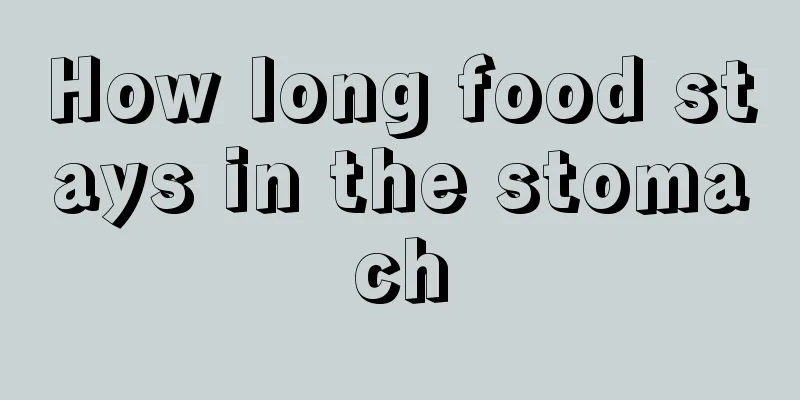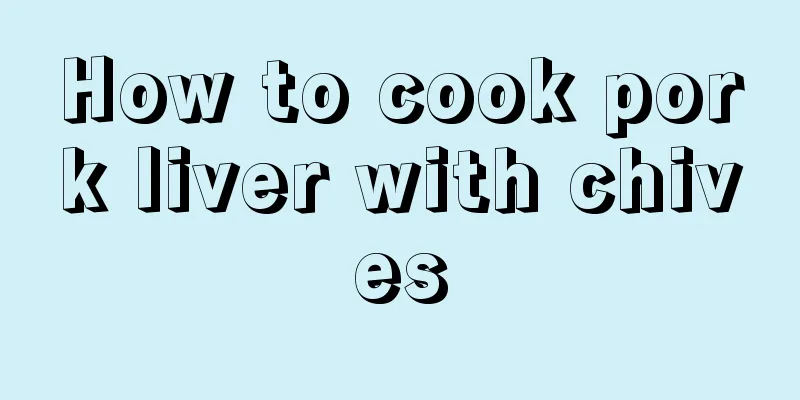How long food stays in the stomach

|
Each of us eats every day, and the food will eventually reach our stomach. The stomach can effectively digest our food, and the time these foods stay in the stomach has a certain range. It cannot stay in the stomach forever, but many people do not know its specific residence time. So how long does food stay in the stomach? After food is eaten, it takes four hours for the stomach to break it down and digest it. After that, the stomach sends the food to the small intestine. After further breakdown and absorption, the ingredients needed by the body are absorbed, and the unnecessary ones are sent to the large intestine. In the meantime, it has to go through intestinal peristalsis to be excreted from the body. The excretion time varies from person to person, but it basically takes about 8 to 10 hours. Usually, eating more fiber foods will help excrete toxins and waste gases from the body. The digestion of food starts in the mouth. Food is mainly digested mechanically (food is ground) in the mouth. Because food stays in the mouth for a very short time, the digestive effect in the mouth is not significant. After food enters the stomach from the esophagus, it is subjected to mechanical digestion by the stomach wall muscles and chemical digestion by the gastric juice. At this time, the protein in the food is initially broken down by the pepsin in the gastric juice (with the participation of gastric acid), and the stomach contents become a porridge-like chyme, which is pushed into the duodenum through the pylorus in small amounts multiple times. After the chyme enters the duodenum from the stomach, digestion begins in the small intestine. The small intestine is the main place for digestion and absorption. Food is digested chemically by pancreatic juice, bile and intestinal fluid, as well as mechanically in the small intestine. Various nutrients are gradually broken down into simple, absorbable small molecules and absorbed in the small intestine. Therefore, after the food passes through the small intestine, the digestion process is basically completed, leaving only difficult-to-digest food residues that enter the large intestine from the small intestine. There is no digestive function in the large intestine, only a certain absorption function. After food is eaten into the stomach, it takes four hours for it to be broken down and digested by the stomach. The stomach then transports the food to the small intestine for further breakdown and absorption. After food enters the stomach from the esophagus, it is initially broken down by gastric acid and pepsin and pushed into the duodenum in small amounts. The emptying of the stomach is related to the nature of the food eaten. Liquid foods such as soups are emptied faster than thick, solid foods. Small pieces of food are emptied faster than large pieces of food. Foods high in protein and fat stay in the stomach longer. The general stomach emptying time for mixed foods is 4 to 5 hours. |
<<: Food that nourishes the stomach and is easy to digest
>>: Foods to regulate the spleen and stomach in children
Recommend
How to make scrambled eggs with green pepper and black fungus
People who can cook are actually very attractive,...
How to make steamed loofah with minced garlic
There are actually many things to pay attention t...
Fried donkey meat with green pepper
There is a saying among the people that there is ...
How to make cake with rice cooker
Our lives cannot be separated from friends, and g...
How to make stir-fried pork with chopped pepper and oyster mushroom
With the development of the times, there may be f...
How to make golden jujube steamed bun
For you who study and work hard every day, the gr...
How to make shrimp steamed egg
If you cook a dish for a hundred people, it will ...
How to make garlic braised pork rice
People often complain about being stressed, havin...
How to make Shacha pork ribs
Faced with so many delicious foods on the market ...
How to cook fried rapeseed with oyster mushrooms
In one’s life, one goes through the process of go...
How to cook ham elbow
The method of stewing ham pork elbow is not as co...
How to make spicy lung
Everyone pursues a life of having food and clothi...
How to cook pork ribs with preserved plums
Disease comes silently, and it is very likely cau...
How to make fried noodles with bean sprouts, garlic sprouts and shredded pork
I believe that many people in life like the dish ...
How to make orange jelly
Below I will introduce to you how to make orange ...









